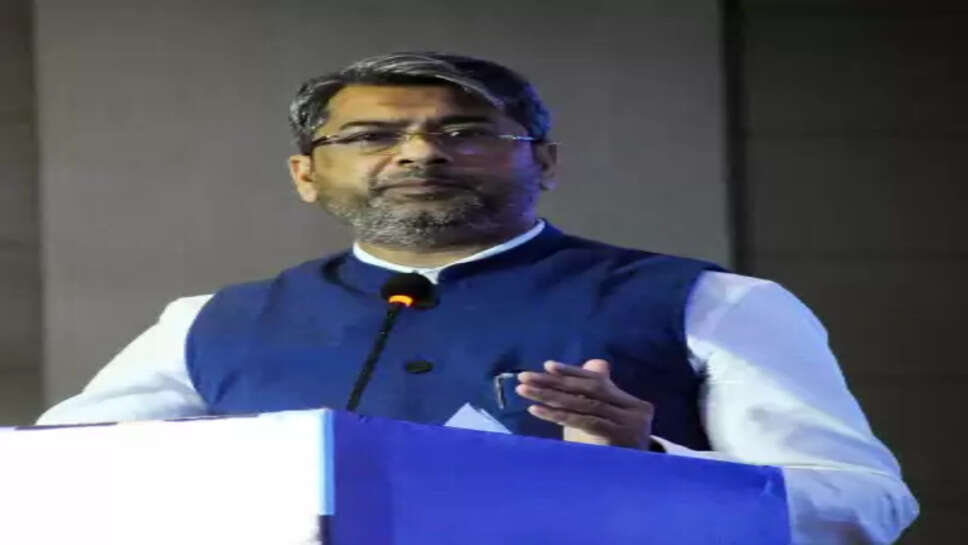World Football Body Threatens India With Suspension Over Third-Party Interference

The future of Indian football stands at a crossroads after FIFA, the global governing body for the sport, issued a stern ultimatum to India: ensure full compliance with its statutes and eliminate third-party interference in football administration by October 30—or face suspension. The warning, which has sent shockwaves through the All India Football Federation (AIFF) and the sporting community, underscores the fragile state of governance in Indian football and the risks of political entanglement in the sport’s administration.
FIFA’s Zero-Tolerance Policy
FIFA’s warning is neither unprecedented nor unexpected. The body has long maintained a strict stance on third-party interference, which it defines as undue involvement by governments, courts, or external organizations in the functioning of national football associations. FIFA’s statutes require federations to operate independently and democratically, with elections, decision-making, and internal affairs free from outside pressure.
“Member associations must manage their affairs independently and without undue influence from third parties,” FIFA reiterated in its communication to the AIFF. “Failure to adhere to this principle could result in suspension, with immediate effect.”
A suspension would mean India’s national teams and clubs would be barred from participating in FIFA- and AFC-sanctioned competitions, including World Cup qualifiers, AFC tournaments, and continental club championships.
The Root of the Dispute
At the heart of the crisis is a recurring pattern of administrative turmoil within the AIFF. Over the past decade, the federation has faced frequent criticism for governance lapses, delayed elections, and prolonged terms of office bearers. These issues have often drawn the attention of the courts and central government, which have stepped in under the pretext of “ensuring accountability.”
While such interventions have been defended domestically as necessary to clean up mismanagement, FIFA views them as violations of its statutes. In recent months, concerns have mounted as external committees and court-appointed observers began influencing decision-making within the AIFF, particularly in areas related to elections, statutes amendments, and financial oversight.
For FIFA, this constitutes clear third-party interference—something it has repeatedly warned India against in the past.
Why the Deadline Matters
The October 30 deadline is critical. FIFA has given India a narrow window to demonstrate compliance by:
-
Conducting AIFF elections in a free and independent manner.
-
Ensuring that the federation’s governance structure aligns with FIFA and AFC statutes.
-
Removing external committees or court-appointed bodies from direct influence in football administration.
Failure to meet these conditions will trigger an automatic suspension, leaving Indian football in a state of global isolation.
Potential Fallout of Suspension
The consequences of suspension would be severe and far-reaching. For players, it would mean an abrupt end to participation in international tournaments. The Indian men’s and women’s national teams would be barred from World Cup qualifiers, Asian competitions, and youth-level tournaments. For clubs, it would block participation in AFC events like the AFC Cup and AFC Champions League, dealing a blow to both reputation and revenue.
Domestically, the Indian Super League (ISL) and I-League could continue, but without recognition from FIFA or AFC, their credibility would suffer. International transfers, player registrations, and technical collaborations would also be frozen.
Perhaps most damaging would be the symbolic impact. Suspension would paint India as a nation incapable of managing its football affairs, undermining years of investment aimed at positioning the country as a rising force in global football.
A History of Warnings
This is not the first time India has found itself under FIFA’s scrutiny. In 2022, the AIFF was briefly suspended after the Supreme Court appointed a Committee of Administrators to oversee the federation’s functioning. FIFA restored membership only after the government assured that elections would be held and autonomy respected.
That episode served as a wake-up call, but little seems to have changed structurally. Governance disputes, election delays, and persistent infighting have left Indian football vulnerable to repeated FIFA interventions.
Government’s Delicate Position
The Government of India finds itself in a tricky position. On one hand, it cannot appear indifferent to allegations of mismanagement within the AIFF. On the other, it risks inviting FIFA sanctions if its oversight is deemed intrusive. Sports governance in India has long been characterized by the involvement of politicians in key federations, and football is no exception.
Officials from the Ministry of Youth Affairs and Sports have indicated that dialogue with FIFA is ongoing and that steps are being taken to reassure the body. Yet, insiders admit that reconciling FIFA’s insistence on independence with India’s judicial and political realities will not be easy.
Voices From the Football Community
The warning has triggered anxiety across India’s football ecosystem. Players fear that years of preparation could be undone by administrative failures. Coaches and academies worry about the loss of exposure and opportunities for young talent. Club owners, particularly in the ISL, are concerned about the financial and reputational impact of suspension.
“This would be a disaster for Indian football,” one senior player remarked. “We train, we sacrifice, we dream of competing internationally. If we’re banned because of governance issues, it’s unfair to the athletes who have nothing to do with it.”
Fan groups have also expressed frustration, urging the AIFF and government to resolve the matter swiftly. Social media campaigns calling for “Save Indian Football” have begun trending, reflecting widespread disillusionment with the administrators.
FIFA’s Global Consistency
India is not alone in facing such scrutiny. Over the years, FIFA has suspended several nations, including Nigeria, Pakistan, and Kuwait, over third-party interference. Each case has followed a similar pattern: external intervention, FIFA’s warning, failure to comply, and suspension. Restoration of membership typically occurs once the interfering influence is removed and statutes are aligned with FIFA’s requirements.
By issuing India a deadline, FIFA is signaling its willingness to act decisively if compliance is not ensured. The body’s consistency on this matter makes it unlikely that exceptions will be made.
What Needs to Happen Next
To avoid suspension, the AIFF must immediately:
-
Conduct fair and transparent elections without judicial or government interference.
-
Amend statutes to align fully with FIFA’s governance model.
-
Demonstrate operational independence in decision-making.
The government, meanwhile, must adopt a hands-off approach while quietly facilitating compliance behind the scenes. Dialogue with FIFA and AFC will be key to finding a solution that safeguards both autonomy and accountability.
The Bigger Picture
At stake is more than just participation in tournaments. The controversy highlights a deeper issue: India’s struggle to build credible, autonomous sports institutions. For football, which has struggled to gain the same traction as cricket, credibility is everything. A suspension would not only stall progress but also erode confidence among fans, players, and investors.
A Race Against Time
With the October 30 deadline fast approaching, Indian football faces its most serious governance crisis in recent memory. FIFA’s warning is clear: comply or be suspended. For AIFF officials, government representatives, and stakeholders, the next few weeks will be crucial.
If reforms are implemented swiftly, India can avoid another embarrassing suspension and refocus on developing its players and infrastructure. If not, the country risks plunging into global isolation at a time when its football ambitions are finally beginning to gather momentum.
The ball, quite literally, is in India’s court.
